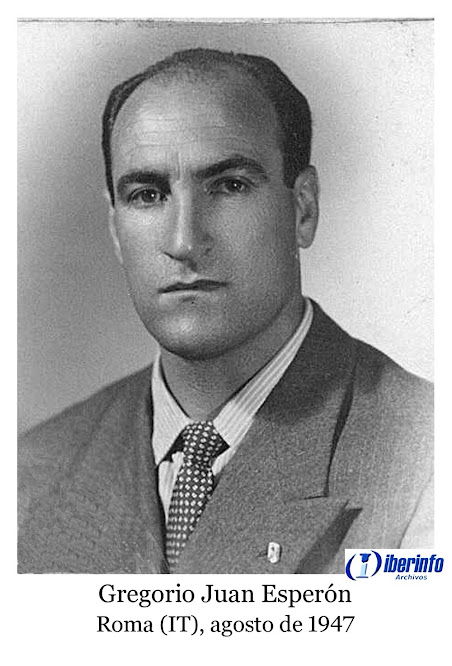EN MEMORIA DE ROSARIO VERA PEÑALOZA
28 DE MAYO: DÍA DE LOS JARDINES DE INFANTES Y DE LA DOCENCIA DE NIVEL INICIAL
Rosario
Vera Peñaloza, una destacada educadora argentina que fuera llamada por sus
pares "la maestra de la Patria",
buscó a lo largo de su trayecto docente la coherencia entre la pedagogía y la
práctica del aula con propuestas reformistas y novedosas.
Su gran preocupación, la educación de la primera infancia y la formación del
docente, hicieron que el Nivel Inicial considerara la fecha de su
fallecimiento, el 28 de mayo, como el día de los Jardines de Infantes.
ROSARIO VERA PEÑALOZA
Nació el 25 de diciembre de 1873 en el pueblo de Atiles, La Rioja, dedicando toda su vida a la enseñanza.
Era nieta paterna de Francisco Nicolás Vera y Herrera, los cuales eran miembros de una extensa familia de hacendados de dicha localidad que la vinculaba familiarmente con los primeros pobladores hispanos de los Llanos riojanos, los de Ávila, los Sánchez de Balderrama, los Vergara y los Peñaloza. Bisnieta de Nicolás Peñaloza, quien por vía del primer matrimonio fue a su vez abuelo del general Ángel Vicente "Chacho" Peñaloza.
Fue una de las docentes que impulsaran los primeros jardines de infantes en la Argentina. A solicitud del Consejo Nacional de Educación, trabajó en la formación del Primer Museo argentino para la Escuela Primaria (Museo Bernasconi).
Falleció el 28 de mayo de 1950 y en su homenaje se instituyó este día como “Día de la Maestra Jardinera” y el “Día de los Jardines Infantes”.
Es
una etapa tan especial para los niños, que la tarea de los docentes debe estar
dirigida no solamente al aprendizaje, sino fundamentalmente a conformar sujetos
que en su formación deben ser mirados desde lo antropológico y lo social.
A nadie escapa que deben tenerse en cuenta en su formación y reflexionar sobre
las matrices con las que el docente educa y conformará las nuevas identidades.
Todo un desafío para la escuela y los docentes, que deben buscar trabajar para
establecer un diálogo, que permita visualizar la complejidad de los niños y
avanzar en el crecimiento y en la transformación, sin someterlos a cuestiones
estancas.
“Porque sabemos que la educación es la
herramienta de transformación de nuestra sociedad, porque sabemos de la
importancia del Nivel Inicial, porque sabemos del amor, de la dedicación y del
trabajo que ustedes, compañeras, le brindan día a día a sus niños y niñas.”
ROSARIO VERA PEÑALOZA, "MADRE DE LA PATRIA"
Tu oficio, qué lindo
oficio
magia del pueblo
en las aulas.
Milagro de alfarería
sonrisa de la mañana.
Palotes, sumas y
restas
tus armas son, maestrita,
ganando mansas batallas
ganándolas día a día…
(Félix Luna)
“ROSARITO VERA” (Zamba; letra: Félix Luna, música: Ariel Ramírez)-Los Fronterizos (formación integrada con Juan Carlos Moreno, Eduardo Madeo, Gerardo López y Eduardo ‘Yayo’ Quesada). Grabado en 1969 para el LP “Los Fronterizos de hoy” (sello Philips 85580 PY)
Se puede escuchar cliqueando sobre la imagen:
IN ROSARIO VERA PEÑALOZA'S MEMORY
MAY 28: KINDERGARTENS DAY
Rosario Vera Peñaloza, a prominent Argentine educator
who was called by her peers "The
Homeland's Teacher", sought throughout her teaching career the
coherence between pedagogy and classroom practice with reformist and innovative
proposals.
Her great concern, early childhood education and teacher training, made that
the Initial Level consider the date of her death, May 28, as the Kindergartens
Day.
ROSARIO VERA PEÑALOZA
She was born on December 25, 1873 at Atiles, (province La Rioja), dedicating her entire life to teaching.
She was the paternal granddaughter of Francisco Nicolás Vera and Herrera, who was member of an extensive family of landowners from that locality who linked her familiarly with the first Hispanic settlers of La Riojan plains, those of Ávila, Sánchez de Balderrama, Vergara and Peñaloza. She was the great-granddaughter of Nicolás Peñaloza, who through his first marriage was in turn General Ángel Vicente "Chacho" Peñaloza grandfather.
She was one of the teachers who promoted the first kindergartens in Argentina. At request of National Council of Education, she worked in the formation of the First Argentine Museum for Elementary Schools (Museo Bernasconi).
She passed away on May 28, 1950 and to her tribute this day was established as "Day of the Gardener Teacher" and "Day of the Kindergartens".
It is such a special stage for children that the task of teachers must be directed not only to learning, but fundamentally to forming subjects that in their training must be viewed from the anthropological and social aspects.
No one is unaware that must be taken into account in
their training and reflect on the matrices with which the teacher educates and
will shape the new identities.
Quite a challenge for the school and the teachers, who must seek to work to
establish a dialogue that allows visualizing the complexity of the children and
advances in growth and transformation, without subjecting them to deadlock
issues.
"Because we know that education is
the transformation tool of our society, because we know the importance of the
Initial Level, because we know the love, dedication and work that you,
companions, provide day by day to your boys and girls. "
ROSARIO VERA PEÑALOZA, "MOTHER OF
THE HOMELAND"
Your work, what a nice work
magic from people
in the classrooms.
Pottery miracle,
morning smile.
Sticks figures, addition and subtraction
your weapons are, teacher,
winning gentle battles
winning them day by day.
(Felix Luna)
“ROSARITO VERA” (Zamba; lyrics: Félix Luna, music: Ariel Ramírez) -Los Fronterizos (folkloric musical group integrated with Juan Carlos Moreno, Eduardo Madeo, Gerardo López and Eduardo ‘Yayo’ Quesada). Recorded in 1969 for the LP “Los Fronterizos de hoy” (Philips label 85580 PY).
It can be listen by clicking on the image:
© Enrique F. Widmann-Miguel / IberInfo-Buenos Aires







Comentarios
Publicar un comentario